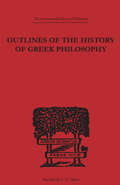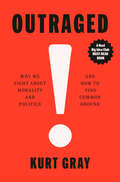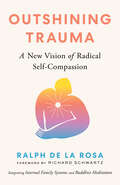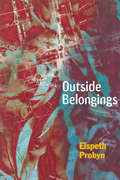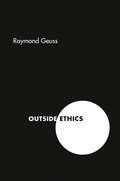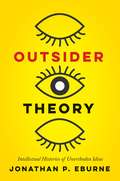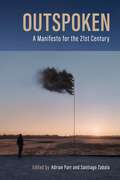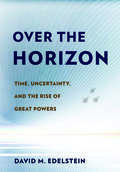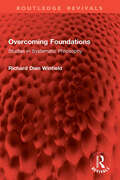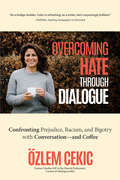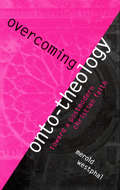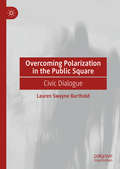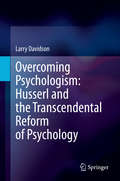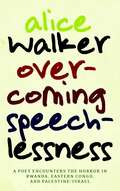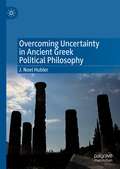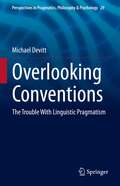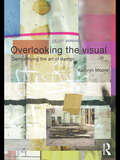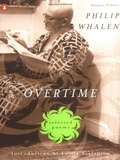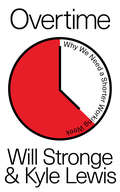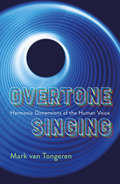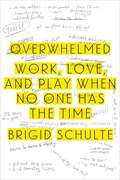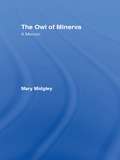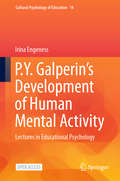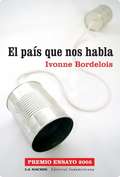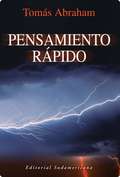- Table View
- List View
Outlines of the History of Greek Philosophy (International Library of Philosophy)
by Eduard ZellerFirst published in 2000. Routledge is an imprint of Taylor & Francis, an informa company.
Outraged: Why We Fight About Morality and Politics and How to Find Common Ground
by Kurt GrayA groundbreaking new perspective on the moral mind that rewrites our understanding of where moral judgments come from, and how we can overcome the feelings of outrage that so often divide usIt&’s easy to assume that liberals and conservatives have radically different moral foundations. In Outraged, Kurt Gray showcases the latest science to demonstrate that we all have the same moral mind—that everyone&’s moral judgments stem from feeling threatened or vulnerable to harm.We all care about protecting ourselves and the vulnerable. Conflict arises, however, when we have different perceptions of harm. We get outraged when we disagree about who the &“real&” victim is, whether we&’re talking about political issues, fights with our in-laws, or arguments on the playground.In this fascinating and insightful tour of our moral minds, Gray tackles popular myths that prevent us from understanding ourselves and those around us. While it is commonly believed that our ancestors were apex predators, Gray argues that for the majority of our evolutionary history, humans were more hunted than hunter. This explains why our minds are hard-wired to perceive threats, and provides surprising insights on the scientific origins of our values and beliefs. Though we might think ourselves driven by objective reasoning, Gray unveils new research that finds our moral judgments are based on gut feelings rather than rational thought, and presents a compelling reminder that we are more alike than we might think.Drawing on groundbreaking research, Gray provides a captivating new explanation for our moral outrage, and unpacks how to best bridge divides. If you want to understand the morals of the &“other side,&” ask yourself a simple question—what harms do they see?
Outshining Trauma: A New Vision of Radical Self-Compassion Integrating Internal Family Systems and Buddhist Meditation
by Ralph De La RosaDiscover a path of post-traumatic growth, spiritual insight, and deep compassion for the most challenging parts of yourself.Ralph De La Rosa integrates Richard Schwartz&’s revolutionary Internal Family Systems (IFS) model with Buddhist meditation practice to offer a radically different healing paradigm.If you&’re among those who&’ve tried therapy and meditation but wonder why you still suffer repetitive patterns and emotions, Outshining Trauma is for you. De La Rosa places the innovative, evidence-based model of IFS in the context of Buddhist meditation to show that the process of healing trauma can lead you to your deepest spiritual nature. This book offers clear conceptual frameworks to understand trauma, post-traumatic growth, and the close relationship between healing trauma and spirituality. The many journal prompts, experiential practices, and guided meditations will teach you how to:See that your mind is made up of disparate &“parts&” that carry their own views and intentions which can become stuck in traumatic experiencesRecognize common types of inner parts in the IFS model, such as &“Managers,&” &“Firefighters,&” and &“Exiles&”Separate from a part inside of you that&’s holding grief, pain, or other difficult feelings and then elicit its concerns and wisdomUtilize meditation as a method for opening to transformative self-compassion and self-loveA survivor himself of depression, PTSD, and addiction, De La Rosa shares gripping, inspirational life stories to demonstrate the path of outshining trauma.
Outside Belongings
by Elspeth ProbynOutside Belongings argues against a psychological depth model of identity--one in which individuals possess an intrinsic quality that guarantees authentic belonging. Instead, Probyn proposes a model of identity that takes into account the desires of individuals, and groups of individuals, to belong. The main ideas she considers--"the outside", "the surface", and "belonging"--allow her to articulate, in concrete terms, her precise concerns about sexuality and nationality.
Outside Ethics
by Raymond GeussOutside Ethics brings together some of the most important and provocative works by one of the most creative philosophers writing today. Seeking to expand the scope of contemporary moral and political philosophy, Raymond Geuss here presents essays bound by a shared skepticism about a particular way of thinking about what is important in human life--a way of thinking that, in his view, is characteristic of contemporary Western societies and isolates three broad categories of things as important: subjective individual preferences, knowledge, and restrictions on actions that affect other people (restrictions often construed as ahistorical laws). He sets these categories in a wider context and explores various human phenomena--including poetry, art, religion, and certain kinds of history and social criticism--that do not fit easily into these categories. As its title suggests, this book seeks a place outside conventional ethics. Following a brief introduction, Geuss sets out his main concerns with a focus on ethics and politics. He then expands these themes by discussing freedom, virtue, the good life, and happiness. Next he examines Theodor Adorno's views on the relation between suffering and knowledge, the nature of religion, and the role of history in giving us critical distances from existing identities. From here he moves to aesthetic concerns. The volume closes by looking at what it is for a human life to have "gaps"--to be incomplete, radically unsatisfactory, or a failure.
Outsider Theory: Intellectual Histories of Unorthodox Ideas
by Jonathan EburneA vital and timely reminder that modern life owes as much to outlandish thinking as to dominant ideologies What do the Nag Hammadi library, Dan Brown&’s The Da Vinci Code, speculative feminist historiography, Marcus Garvey&’s finances, and maps drawn by asylum patients have in common? Jonathan P. Eburne explores this question as never before in Outsider Theory, a timely book about outlandish ideas. Eburne brings readers on an adventure in intellectual history that stresses the urgency of taking seriously—especially in an era of fake news—ideas that might otherwise be discarded or regarded as errant, unfashionable, or even unreasonable. Examining the role of such thinking in contemporary intellectual history, Eburne challenges the categorical demarcation of good ideas from flawed, wild, or bad ones, addressing the surprising extent to which speculative inquiry extends beyond the work of professional intellectuals to include that of nonprofessionals as well, whether amateurs, unfashionable observers, or the clinically insane. Considering the work of a variety of such figures—from popular occult writers and gnostics to so-called outsider artists and pseudoscientists—Eburne argues that an understanding of its circulation and recirculation is indispensable to the history of ideas. He devotes close attention to ideas and texts usually omitted from or marginalized within orthodox histories of literary modernism, critical theory, and continental philosophy, yet which have long garnered the critical attention of specialists in religion, science studies, critical race theory, and the history of the occult. In doing so he not only sheds new light on a fascinating body of creative thought but also proposes new approaches for situating contemporary humanities scholarship within the history of ideas. However important it might be to protect ourselves from &“bad&” ideas, Outsider Theory shows how crucial it is for us to know how and why such ideas have left their impression on modern-day thinking and continue to shape its evolution.
Outspoken: A Manifesto for the Twenty-First Century (Outspoken)
by Adrian Parr and Santiago ZabalaIn a world of increasing right-wing populism, global capitalism, and a climate emergency, leading thinkers come together to interrogate the meaning and practice of being outspoken. The violence, nativism, persecution, and social hostilities of the twenty-first century demand a call to order: philosophical and theoretical communities must commit their intellectual resources to confronting and articulating the structures, desires, and resentment driving the dismantling of democratic values. Action in the absence of understanding and political vision devoid of inclusive ideas are all the more vulnerable to taking a reactionary turn. Contributors to this volume challenge the return of fascism, dehumanization of immigrants, distrust of science, intolerance of fair and equitable economic models, and suspicion of inclusive political platforms. All, in their own way, tackle the burning question of how we might reimagine twenty-first-century life in the face of divisive forces. Outspoken includes essays by some of the world’s most radical thinkers – Rosi Braidotti, Henry A. Giroux, Amelia Jones, and Slavoj Žižek, among others – who together chart multiple progressive courses for political antagonism and social intervention.
Over the Horizon: Time, Uncertainty, and the Rise of Great Powers
by David M. EdelsteinHow do established powers react to growing competitors? The United States currently faces a dilemma with regard to China and others over whether to embrace competition and thus substantial present-day costs or collaborate with its rivals to garner short-term gains while letting them become more powerful. This problem lends considerable urgency to the lessons to be learned from Over the Horizon. David M. Edelstein analyzes past rising powers in his search for answers that point the way forward for the United States as it strives to maintain control over its competitors.Edelstein focuses on the time horizons of political leaders and the effects of long-term uncertainty on decision-making. He notes how state leaders tend to procrastinate when dealing with long-term threats, hoping instead to profit from short-term cooperation, and are reluctant to act precipitously in an uncertain environment. To test his novel theory, Edelstein uses lessons learned from history’s great powers: late nineteenth-century Germany, the United States at the turn of the twentieth century, interwar Germany, and the Soviet Union at the origins of the Cold War. Over the Horizon demonstrates that cooperation between declining and rising powers is more common than we might think, although declining states may later regret having given upstarts time to mature into true threats.
Overcoming Foundations: Studies in Systematic Philosophy (Routledge Revivals)
by Richard Dien WinfieldFirst published in 1989, Overcoming Foundations offers a challenge to both postmodernism and traditional doctrines of knowledge and value by undertaking a systematic philosophy without foundations. United by a concern for overcoming foundations without overcoming philosophy, the essays in this book discuss a wide range of issues in epistemology and ethics, incorporating analysis of major thinkers of the past and present and drawing critically on Hegel’s argument. The book unveils the dogmatic assumption of the futility of philosophy’s traditional quests for universal truth and ethics and lays out the strategy for achieving autonomy of reason and valid norms of conduct without foundational appeals.After examining how a critique of foundations can be executed without making new foundational claims, Winfield considers how philosophy must operate in order to think truth without given conceptual schemes and to achieve rational autonomy. Finally, the author explores the implications of a reason free of foundations for the history of philosophy and the debates embroiling contemporary thought. The essays outline an independent theory of justice, rethinking morality, and the structures of civil society and democratic government. Overcoming Foundations advances a much ignored philosophical alternative, a systematic contribution to epistemology, ethics, and social and political philosophy.
Overcoming Hate through Dialogue: Confronting Prejudice, Racism, and Bigotry with Conversation—and Coffee
by Özlem CekicA TED Talk speaker offers a blueprint for confronting racism, prejudice and hatred, a conflict resolution process that she calls &“Dialogue Coffee.&” Familiarity and dialogue are the antidote to intolerance and prejudice. Özlem&’s method of having coffee with people who send her hate mail has been recognized around the world and inspires listening, understanding, and an end to blind hatred. When Özlem Cekic became the first Muslim MP in the Danish Parliament, her email inbox started flooding with hate mail and threats, and her first reaction was to delete and ignore each abusive message. But eventually, she decided to take a risk. She started replying to each message and inviting the senders to meet and engage in dialogue over coffee. What she discovered was that she could create change in the people who sent her hate mail, understand where their anger came from, and build friendships through finding common ground. Imagine a world where we can have a conversation with anyone. Overcoming Hate through Dialogue teaches you how to make that a reality: · Listen and focus on what you have in common instead of your differences · Praise your counterpart for having the courage to have this conversation · Recognize the other person&’s emotions and feelings even if you don&’t agree with them · Distance yourself from the other person&’s attitude, but never the human and their humanity &“This brilliant and well-researched book ought to be required reading for anyone interested in conflict resolution; it gives nuance to an otherwise stale-mated debate.&” —Journalisten &“As a bridge-builder, Cekic is refreshing; as a writer, she&’s surprisingly brilliant.&” —Politiken
Overcoming Onto-Theology: Toward a Postmodern Christian Faith (Perspectives in Continental Philosophy)
by Merold WestphalOvercoming Onto-theology is a stunning collection of essays by Merold Westphal, one of America’s leading continental philosophers of religion, in which Westphal carefully explores the nature and the structure of a postmodern Christian philosophy. Written with characteristic clarity and charm, Westphal offers masterful studies of Heidegger’s early lectures on Paul and Augustine, the idea of hermeneutics, Schleiermacher, Hegel, Derrida, and Nietzsche, all in the service of building his argument that postmodern thinking offers an indispensable tool for rethinking Christian faith. A must read for every student and professor of continental philosophy and the philosophy of religion, Overcoming Onto-theology is an invaluable collection that brings together in one place fourteen provocative and lucid essays by one of the most important thinkers working in American philosophy today.
Overcoming Polarization in the Public Square: Civic Dialogue
by Lauren Swayne BartholdThis book describes how civic dialogue can serve as an antidote to a polarized public square. It argues that when pervasive polarization renders rational and fact-based argumentation ineffective, we first need to engage in a way that builds trust. Civic dialogue is a form of structured discourse that utilizes first-person narratives in order to promote trust, openness, and mutual understanding. By creating a dialogic structure that encourages listening and reflection, particularities and differences about fraught identities can be expressed in such a way that leads to the possibility of connecting through our fundamental, shared, and deeply felt humanity. Drawing on Plato, Buber, Gadamer, Dewey, cognitive bias research, as well as the work of dialogue practitioners, Lauren Swayne Barthold provides a sustained defense of civic dialogue as an effective strategy for avoiding futile political arguments and for creating pluralistic democratic communities.
Overcoming Psychologism: Husserl and the Transcendental Reform of Psychology
by Larry DavidsonThis book shows us how rather than abandoning psychology once he liberated phenomenology from the psychologism of the philosophy of arithmetic, Edmund Husserl remained concerned with the ways in which phenomenology held important implications for a radical reform of psychology throughout his intellectual career. The author fleshes out what such a radical reform actually entails, and proposes that it can only be accomplished by following the trail of the transcendental reduction described in Husserl’s later works. In order to appreciate the need for the transcendental even for psychology, the book tracks Husserl’s thinking on the nature of this relationship between phenomenology as a philosophy and psychology as a positive science as it evolved over time.The text covers Husserl’s definition of phenomenology as “descriptive psychology” in the Logical Investigations, rejecting the hybrid form of “phenomenological psychology” described in the lectures by that name, and ends with his proposal for a “fundamental refashioning” of psychology by situating it within the transcendental framework of The Crisis of European Sciences and Transcendental Phenomenology. The Author argues for a re-grounding of psychology by virtue of a “return to positivity” after having performed the reduction to transcendental intersubjectivity. What results is a phenomenological approach to a transcendentally-grounded psychology which, while having returned to the life-world, no longer remains transcendentally naïve. A phenomenologically-grounded psychology thus empowers researchers, clinicians, and clients alike to engage in social actions that move the world closer to achieving social justice for all. This text appeals to students and researchers working in phenomenology and psychology.
Overcoming Speechlessness: A Poet Encounters the Horror in Rwanda, Eastern Congo, and Palestine/Israel
by Alice WalkerIn 2006, Alice Walker, working with Women for Women International, visited Rwanda and the eastern Congo to witness the aftermath of the genocide in Kigali. Invited by Code Pink, an antiwar group working to end the Iraq War, Walker traveled to Palestine/Israel three years later to view the devastation on the Gaza Strip. Here is her testimony.Bearing witness to the depravity and cruelty, she presents the stories of the individuals who crossed her path and shared their tales of suffering and courage. Part of what has happened to human beings over the last century, she believes, is that we have been rendered speechless by unusually barbaric behavior that devalues human life. We have no words to describe what we witness. Self-imposed silence has slowed our response to the plight of those who most need us, often women and children, but also men of conscience who resist evil but are outnumbered by those around them who have fallen victim to a belief in weapons, male or ethnic dominance, and greed.
Overcoming Uncertainty in Ancient Greek Political Philosophy
by J. Noel HublerOvercoming Uncertainty in Ancient Greek Political Philosophy makes an historical and theoretical contribution by explaining the role of opinion in ancient Greek political philosophy, showing its importance for Aristotle’s theory of deliberation, and indicating a new model for a deliberative republic. Currently, there are no studies of opinion in ancient Greek political theory and so the book breaks new historical ground. The book establishes that opinion is key for the political theories of Plato, Aristotle, and the Stoics because each sees uncertainty as a problem that needs to be overcome if one is to establish a virtuous polity. Since they have different notions of the nature of the uncertainty of opinion, they develop very different political strategies to overcome it. The book explains that Plato’s and the Stoics’ analyses of uncertainty support oligarchy and monarchy, respectively, and that theoretical support for deliberate politics requires a more nuanced understanding of uncertainty that only Aristotle provides.
Overlooking Conventions: The Trouble With Linguistic Pragmatism (Perspectives in Pragmatics, Philosophy & Psychology #29)
by Michael DevittThis book criticizes the methodology of the recent semantics-pragmatics debate in the theory of language and proposes an alternative. It applies this methodology to argue for a traditional view against a group of “contextualists” and “pragmatists”, including Sperber and Wilson, Bach, Carston, Recanati, Neale, and many others. The author disagrees with these theorists who hold that the meaning of the sentence in an utterance never, or hardly ever, yields its literal truth-conditional content, even after disambiguation and reference fixing; it needs to be pragmatically supplemented in context.The standard methodology of this debate is to consult intuitions. The book argues that theories should be tested against linguistic usage. Theoretical distinctions, however intuitive, need to be scientifically motivated. Also we should not be guided by Grice’s “Modified Occam’s Razor”, Ruhl’s “Monosemantic Bias”, or other such strategies for “meaning denialism”. From this novel perspective, the striking examples of context relativity that motivate contextualists and pragmatists typically exemplify semantic rather than pragmatic properties. In particular, polysemous phenomena should typically be treated as semantic ambiguity. The author argues that conventions have been overlooked, that there’s no extensive “semantic underdetermination” and that the new theoretical framework of “truth-conditional pragmatics” is a mistake.
Overlooking the Visual: Demystifying the Art of Design
by Kathryn MooreMaking tangible connections between theory and practice, ideas and form, this book encourages debate about the artistic, conceptual, and cultural significance of the way things look. What are the metaphysical concepts at the heart of design education, theory, and philosophy? Why do we assume that design is impossible to teach? This book challenges the traditional foundations of perception and takes an imaginative, radical approach, setting itself apart from the traditions of analytical philosophy, evolutionary psychology, and phenomenology which underpin much of current design theory and discourse. The new definition of perception produces startling consequences for conceptions of language, intelligence, meaning, the senses, emotions and subjectivity. This is an innovative, fresh view on design and how we can improve it for both practitioners and students in the architecture and design fields as well as philosophers.
Overtime: Selected Poems (Penguin Poets)
by Philip WhalenLike his college roommate Gary Snyder, Philip Whalen took both poetry and Zen seriously. He became friends with Allen Ginsberg, Jack Kerouac, and Michael McClure, and played a key role in the explosive poetic revolution of the '50s and '60s. Celebrated for his wisdom and good humor, Whalen transformed the poem for a generation. His writing, taken as a whole, forms a monumental stream of consciousness (or, as Whalen calls it, "continuous nerve movie") of a wild, deeply read, and fiercely independent American-one who refuses to belong, who celebrates and glorifies the small beauties to be found everywhere he looks. This long-awaited Selected Poems is a welcome opportunity to hear his influential voice again.
Overtime: Why We Need A Shorter Working Week
by Will Stronge Kyle LewisWork isn&’t workingAs precarity and low pay become further embedded in the job market, at a time when work-related stress and exhaustion are endemic, it is clear that a new, radical approach to employment is required. Many industries already face existential threats from automation, climate breakdown, a crisis of care, and an ageing population. In Overtime, Kyle Lewis and Will Stronge identify a powerful and practicable response to these worrying trends: the shorter working week.This urgent and timely book shows what a shorter working week means in the context of capitalist economies and delves into the history of this idea as well as its political implications. Drawing on a range of political and economic thinkers, Lewis and Stronge argue that a shorter working week could build a more just and equitable society, one based on collective freedom and human potential, providing scope for the many to achieve a happier, more fulfilling life.
Overtone Singing: Harmonic Dimensions of the Human Voice
by Mark Van TongerenAn indispensable guide to a deeper understanding of the nature of the human voice and its harmonic possibilities from East to West.Overtone Singing is the most comprehensive book ever written on the hidden harmonies of the human voice. Ethnomusicologist and vocalist Mark van Tongeren offers fascinating insights into the timeless and universal aspects of sound and vibration. Grounded in the author&’s decade-long study of Asian music, the book draws upon field work, interviews with Eastern and Western musicians, and copious scholarship to present a multidisciplinary vision of sound that runs from global music to the science of acoustics and perception, onward to the philosophical and spiritual dimensions of music. Written in a nontechnical style, this generously illustrated book is an indispensable guide for musicians, listeners, and performers seeking a deeper understanding of the nature of the human voice and its harmonic possibilities from East to West.
Overwhelmed: Work, Love, and Play When No One Has the Time
by Brigid SchulteAccording to the Leisure Studies Department at the University of Iowa, true leisure is “that place in which we realize our humanity.” If that’s true, argues Brigid Schulte, then we're doing dangerously little realizing of our humanity. In Overwhelmed, Schulte, a staff writer for The Washington Post, asks: Are our brains, our partners, our culture, and our bosses making it impossible for us to experience anything but “contaminated time”?<P> Schulte first asked this question in a 2010 feature for The Washington Post Magazine: “How did researchers compile this statistic that said we were rolling in leisure—over four hours a day? Did any of us feel that we actually had downtime? Was there anything useful in their research—anything we could do?”<P> Overwhelmed is a map of the stresses that have ripped our leisure to shreds, and a look at how to put the pieces back together. Schulte speaks to neuroscientists, sociologists, and hundreds of working parents to tease out the factors contributing to our collective sense of being overwhelmed, seeking insights, answers, and inspiration. She investigates progressive offices trying to invent a new kind of workplace; she travels across Europe to get a sense of how other countries accommodate working parents; she finds younger couples who claim to have figured out an ideal division of chores, childcare, and meaningful paid work. Overwhelmed is the story of what she found out.
Owl of Minerva: A Memoir
by Mary MidgleyOne of the UK's foremost moral philosophers, Mary Midgley recounts her remarkable story in this elegiac and moving account of friendships found and lost, bitter philosophical battles and of a profound love of teaching. In spite of her many books and public profile, little is known about Mary's life. Part of a famous generation of women philosophers that includes Elizabeth Anscombe, Philippa Foot, Mary Warnock and Iris Murdoch, Midgley tells us in vivid and humorous fashion how they cut a swathe through the arid landscape of 1950s British Philosophy, writing and arguing about the grand themes of character, beauty and the meaning of rudeness. As the mother of three children, her journey during the 1950s and 1960s was one of a woman fighting to combine a professional career with raising a family. In startling contrast to many of the academic stars of her generation, we learn that Midgley nearly became a novelist and started writing philosophy only when in her fifties, suggesting that Minerva’s owl really does fly at dusk. Charting the highs and lows of philosophy and academia in Britain, this publication sheds light on Mary’s close friends, her moral philosophy and her meetings with major philosophers, including Wittgenstein and Isaiah Berlin.
P.Y. Galperin's Development of Human Mental Activity: Lectures in Educational Psychology (Cultural Psychology of Education #14)
by Irina EngenessThis open access book introduces the legacy of Piotr Galperin to a wider audience of researchers, educators and psychologists. Previous translations of Galperin’s work present only some aspects of his conceptual thinking; however, his main contribution to the general, genetic and pedagogical psychology as a unique holistic and systemic approach to studying of psychological phenomena and processes, mechanisms of their formation and development, is still quite unknown in most parts of the world.The eight lectures chosen for the book have been translated from Russian for the first time, and they belong to the Study of the Formation of Human Mental Activity from Galperin’s collection of the Lectures in Psychology (Galperin, 2002). These eight lectures present the central ideas of Galperin’s pedagogical theory, and they conceptualise learning to learn approach and argue how teaching and learning process can enhance the development of higher mental functions with learners and therefore enhance the development of students as learners. These ideas may be of primary importance to educational practitioners and researchers interested in developmental learning and teaching approach given the current concerns of educational practice that schools struggle to prepare students for their adult and the need to develop the capacity in lifelong learning with students in the 21st century.
PAIS QUE NOS HABLA, EL (EBOOK)
by Ivonne BordeloisCuáles son los peligros y las amenazas que nos acechan en relación con esa riqueza fundamental de todo pueblo que es su lengua? Qué podemos hacer para conjurarlos? La campaña de devastación verbal que realizan los medios nos prepara para ser zombies de la sociedad de consumo y nos priva de la riqueza del idioma, que no sólo es comunicación sino sabiduría e identidad. El país que nos habla, de Ivonne Bordelois, intenta señalar un camino en ese sentido.
PENSAMIENTO RAPIDO (EBOOK)
by Tomas AbrahamPensamiento rápido es un registro idóneo y vertiginoso, voraz y continuo de diversas -y muchas veces contradictorias- versiones de la realidad. Como en todos sus libros anteriores, Tomas Abraham pone en aprieto supuestos y convenciones de la filosofía y de otras disciplinas afines. En este, sin embargo, mas que nunca desafiá cualquier limitación o tiranía de los géneros y arma un sistema de ataque a los temas que la permanencia parece expulsar y la actualidad disimular. Mezcla brusca y agilísima de periodismo y ensayismo en sus modalidades mas dignas, aguda percepción de los hechos a la velocidad de zapping, asimilación tan apta para la certeza profética como para la admisión del error, Tomas Abraham se muestra en Pensamiento rápido en dos vertientes: el cazador de costumbres y el ensayista negro. En la primera, la sociedad argentina se compone y descompone en escenarios en los que se despliegan sus habilidades políticos, economistas, psiquiatras de la mas rara especie y distinguidos riesgos de la pastoral nacional. El decorado mediático es su ámbito privilegiado. En el ensayo negro, Tomas Abraham narrar las ideas y las inscribe en una historia o en una vida. La visión de Gombrowicz sobre el aburrimiento como estrategia para des-enamorarse; el peso de la literatura de Alber Camus en un joven suizo que tiene riesgos de tabaquismo luego de leer El Extranjero; los cruces entre Deleuze y Foucault; la epopeya religiosa del navegante Vito Dumas o los recorridos de Regis Debray, le sirven para rechazar lo evasivo o lo obvio de la critica culturalmente correcta. A la perspectiva imprevisible, directa -y a veces hasta violenta- que el autor de Pensamiento rápido adopta en estos artículos escritos en su mayoría cuando el acontecimiento aun estaba caliente, hay que agregar otros antídotos de la solemnidad y la circunspección: el humor y la ironía. Gracias a estos, Tomas Abraham crea un contexto de vivacidad y potencia, que lo banal y efímero como ingredientes, en un medio de falsa profundidad y trascendencia habitado a menudo por la nostalgia y la queja.
